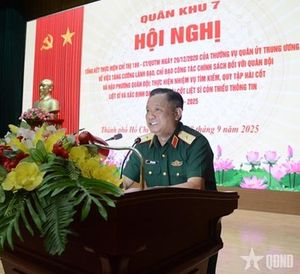Fans of the widely popular anime series Solo Leveling are experiencing mixed emotions as the highly anticipated Season 2 -Arise From the Shadow- rolls out new episodes. With its debut on January 4, 2025, and increased momentum from the previous season, Season 2 has brought forth significant changes to pacing, character development, and the overall narrative structure.
The production's decision to accelerate the plot has sparked discussion among fans about its effect on the cultural tone and portrayal of characters. According to reports, the pacing for Season 2 is substantially faster than Season 1, with early episodes adapting around ten chapters of the manhwa compared to 45 chapters for the entirety of the first season.
One notable shift is the evolution of the main character, Sund Jinwoo. Unlike his portrayal in the manhwa, where he displayed ruthlessness without grappling with the consequences of his actions, the anime adaptation emphasizes Jinwoo's internal struggles. Jinwoo's encounters, including the pivotal confrontation with Kim Chul, now frame his actions more defensively instead of aggressively, leading to questions about his moral character.
Kim Chul's demise is particularly telling of this shift; whereas the webtoon depicts Jinwoo as coldly orchestrated during the encounter, the anime presents it as self-defense, perhaps to align with conventional hero narratives. This more nuanced portrayal has resulted in Jinwoo's emotional burden being highlighted, changing the tone and depth of his character.
Another major alteration in Solo Leveling Season 2 is the increased importance placed on secondary characters. Players like Hae-in and Jin-chul receive more screen time, adding depth to the story and shifting the focus away from Jinwoo’s solo adventures. This development allows for richer interactions and backstories, making the narrative more character-driven than it was previously.
Although some fans appreciate these aspects, others criticize them for diluting the intense atmosphere of the original manhwa. Discussions on social platforms reflect this split, with viewers weighing the benefits of improved animation and pacing against the lost humor and character depth from the webtoon.
According to Solo Leveling Official X, “The anime’s tone has shifted to be more serious, letting viewers dwell on the darker themes at play, contrasting sharply with the more humorous elements of the manhwa.” The anime adaptation aims to reach wider audiences, which has resulted in the toning down of some of the darker themes.
Viewers can also see the introduction of new elements such as additional shadow warriors and enhanced battles, such as Jinwoo's spectacular showdowns against Kargalgan's high-orc forces. Episode 6, titled 'Don’t Look Down on My Guys,' showcases these intense confrontations, including how Jinwoo tactically manages the battlefield. By claiming another victory, he consolidates his power and proves the strength of his shadow army.
While fans may miss the humor and warmth of the original narrative, the changes have undeniably set the stage for captivating animated storytelling. Visual enhancements contribute to the overall viewing experience, especially during the high-stakes battles. With each episode, viewers witness Jinwoo’s rise as he tackles challenges head-on, backed by his shadow army.
Jinwoo even faced question marks about his mortal relevance during moments of battle, emphasizing how his transformation isolates him from others. This theme was propelled significantly earlier than it had been presented within the manhwa, particularly during the inception of the Jeju Island Raid Arc.
The broader narrative rhythm of Season 2 has made its mark on viewers, for good or ill. The decision to prioritize faster storytelling often leads to the omission of character moments and side plots. With each adaptation leap, parts of the groundwork laid within the manhwa face cuts or reworkings to fit the anime format.
How these changes will affect audience perception of Solo Leveling lies at the heart of discussions surrounding the series. Fans are split between appreciating the breathtaking animation and solidarity with complex characters, versus longing for the full experience of the original content. While there is no denying the sheer spectacle delivered by the second season, it remains to be seen whether these alterations will resonate positively in the long run.
Indeed, Season 2 seems committed to presenting Solo Leveling as more than just pure action; it is offering darker themes, moral conflicts, and relational dynamics. This creative decision may broaden the anime’s potential audience but admits some risks related to dissimilarity from its successful source material. Will the changes resonate with new viewers and existing fans alike? Only time will tell.



